
August 2021
Planning Underway for the AAVMC’s “Catalyze 2022” Annual Conference at Washington’s Famed Watergate Hotel
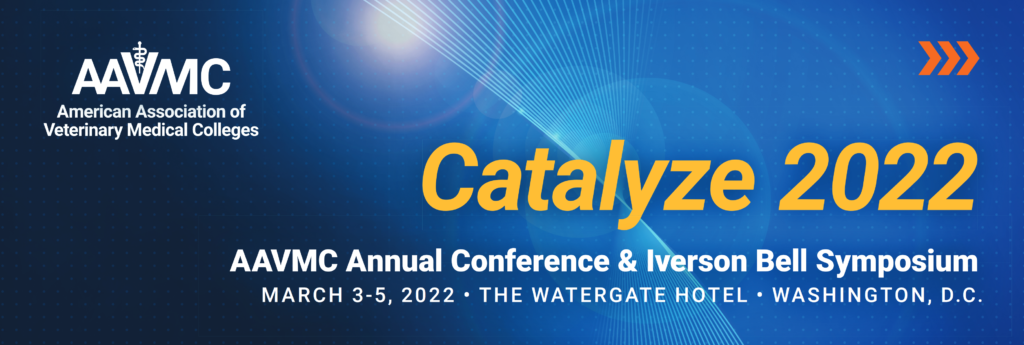
Planning is underway the AAVMC’s 2021 Annual Conference & Iverson Bell Symposium “Catalyze 2022” at Washington D.C.’s famous Watergate Hotel March 3-5, 2021. The meeting is expected to be hybrid: it will be live and in-person, but it will also feature opportunities for remote participation.
The program committee is working with staff and thought leaders from around the world to build a program that will inform and inspire educators from across the spectrum of academic veterinary medicine. Sessions will explore advancements in instruction as well as how dynamic changes in diversity, equity and inclusion and wellbeing are improving organizational cultures.
Invitations have been extended to several world-class guest speakers, so please stay tuned to upcoming editions of the AAVMC Vet-Med Educator for future announcements. The registration site for the 2022 conference is expected to open in October, according to AAVMC Manager for Meetings & Events Ms. Leslie Wilson.
National Veterinary Scholars Symposium Showcases Veterinary Medical Research

Almost 900 people convened for the virtual 2021 National Veterinary Scholars Symposium (NVSS), an annual scientific gathering that showcases veterinary medical student research. Hosted by the Iowa State University College of Veterinary Medicine, the meeting was held August 4-6. The massive virtual gathering of students, faculty, university and business representatives heard from a prestigious cast of keynote speakers and attended a variety of informational and networking sessions – all centered around the essential role of veterinary medical research.

Students participating in the program conduct a hypothesis-driven research project developed jointly by the student scholar and faculty mentor, which is typically conducted over an 8-12 week period during the summer. The results are then shared in the end-of-summer research symposium. Hundreds of posters and abstracts were available during the event.
“The College of Veterinary Medicine at Iowa State University was honored to host and present the 2021 National Veterinary Student Symposium,” said Dr. Dan Grooms, the Dr. Stephen G. Juelsgaard Dean of Veterinary Medicine at the Iowa State University CVM. “The work presented by veterinary students was incredible and no doubt will help to answer important questions that will impact animals, humans and the environment. Importantly, their experiences will have a profound impact on their future success as a proud member of the veterinary profession.”
The annual showcase of veterinary medical research was sponsored by Boehringer Ingelheim and the National Institutes of Health (NIH). The American Veterinary Medical Association sponsored production of the 370 page abstract booklet.
“Boehringer Ingelheim is delighted to continue our long-standing support of veterinary research by sponsoring this National Veterinary Scholars Symposium that will enable veterinary students and young researchers to share the results of their summer research, and we especially welcome this year’s Boehringer Ingelheim Veterinary Scholars,” said Eric Haaksma, Head of Animal Health Global Innovation, Boehringer Ingelheim. “Now more than ever we realize the importance of developing and nurturing scientists with the skills and training to fulfill our needs for comparative animal research, animal and human food safety, and drug development if we are to continue to advance biomedical research.”
Registrants heard from three respected keynote speakers throughout the three-day event.
- Dr. Kathryn M. Jones, associate professor in the Departments of Pediatrics, Section of Tropical Medicine, and Molecular Virology and Microbiology at Baylor College of Medicine, discussed “Addressing the Global Burden of Chagas Disease.”
- Dr. Jim Roth, a Distinguished Professor in the ISU-CVM, National Academy of Medicine member, and former National Science Advisory Board for Biosecurity member discussed “Infectious Disease Control Through Research, Policy Development, and Education.”
- Dr. Liara Gonzalez, associate professor of gastroenterology and equine surgery at the North Carolina State University College of Veterinary Medicine and American College of Veterinary Surgeons (ACVS) Diplomate, discussed “Intestinal Regenerative Medicine: Targeting Key Stem Cells to Enhance Intestinal Viability.”
The meeting featured a variety of breakout sessions that provided students with a chance to obtain career advice from experts regarding academic programs and career pathways leading to careers in academia, government and corporate practice as well as opportunities in various areas of veterinary medicine and science.
A special Combined Degree Colloquium with programming specifically designed for students pursuing dual professional and PhD programs was held in conjunction with the event.
Six leading veterinary researchers were recognized with 2021 AVMA Excellence in Research Awards and Boehringer Ingelheim Veterinary Research Awards during the event.
“The AAVMC is proud to collaborate with Iowa State University on the presentation of the 2021 National Veterinary Scholars Symposium,” said AAVMC Chief Executive Officer Dr. Andrew T. Macccabe. “We’re especially grateful to Boehringer Ingelheim for their continued and generous support of this symposium, and we appreciate our partnerships with the National Institutes of Health and the AVMA, which sponsored the symposium proceedings. We share an appreciation for the important role this event plays in helping our students gain experience, develop their skills and consider careers in this vital area of our profession.”
The AAVMC would like to acknowledge the planning committees and other volunteers that worked so hard to produce the symposium. Members of the National Planning Committee included Dr. Qijing Zhang, the Clarence Hartley Covault Distinguished Professor and associate dean for research and graduate studies at Iowa State University; Dr. Brad Blitvich, interim assistant dean of graduate studies and research training at Iowa State University; and Karen Barker, grants specialist, Iowa State University.
The 2022 National Veterinary Scholars Symposium will be hosted by the University of Minnesota in Minneapolis.
AAVMC Produces Glossary of Terms in Diversity, Equity & Inclusion
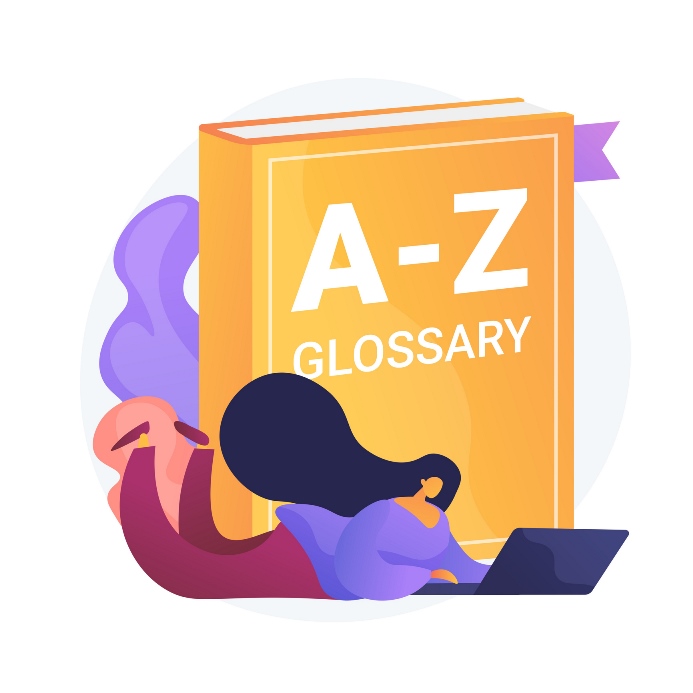
As the academic veterinary medical community works together to create more diverse and inclusive environments in our colleges and schools, it is important that we share a common understanding and lexicon regarding the many different aspects of this overarching initiative.
To help keep everyone on the same page, the AAVMC has produced a glossary of terms and definitions that are commonly used in programs and discussions associated with diversity, equity and inclusion.
The AAVMC recognizes that such language is constantly evolving, and will review and update the document annually, according to Senior Director for Institutional Research and Diversity Dr. Lisa Greenhill.
ARC Working at the Heart of Academic Veterinary Medicine

When you consider the primary goal of academic veterinary medicine is to create future generations of veterinarians, it’s easy to understand why the work of the AAVMC’s Admissions and Recruitment Committee is so important.
The ARC is continuously examining the admissions and recruitment process and the Veterinary Medical Application Service (VMCAS) to ensure best possible practices, and it’s working to inspire, cultivate and develop future applicants. In recent years, it’s focused on eliminating barriers that can thwart the strategic goal of creating more diversity, equity and inclusion in the profession.
Several advisory groups have been created or are being formed to focus on some pressing issues.
- An Experience Hours Advisory Group is reviewing the overall experience hour requirement with the goal of developing a recommendation for the community to consider regarding experience hour competencies.
- A Recommendation Letter Advisory Group is using evidence-based research regarding letters of recommendation in an effort to develop a recommendation for the community to consider regarding the use of recommendation Letters
- An Essay Question Bank Advisory Group will soon begin work on the development of a centralized bank of essay questions that member institutions can use as part of the application process.
The ARC is also in the process of developing an “Advisor Toolkit” that will help standardize the advice pre-veterinary advisors provide to future applicants, creating a “Speakers Bureau” and drafting “acceptance guidelines” for applicants. To facilitate their work, the ARC has been hosting “hot topic” webinars and utilizing the AAVMC’s Connect system.
The ARC functions as a committee of the Assembly and is composed of members that are involved in the admissions process, including admissions directors, associate or assistant deans of student affairs or academic affairs, or others that have experience and expertise in this area.
The ARC Leadership Group is composed of five representatives that are appointed by the AAVMC president to serve three year terms. The ARC also includes a National Association of Advisors for the Health Professions (NAAHP) liaison.
Members of the ARC Leadership Group include Dr. Caroline (Callie) Rost, Chair, Assistant Dean for Admissions at the Kansas State University College of Veterinary Medicine; Dr. Eloise Jillings,Chair Elect, Associate Dean, Admission & Students at the Massey University School of Veterinary Medicine; and Dr. Karl Jandrey, Past Chair, Associate Dean, Admissions & Student Programs at the University of California-Davis School of Veterinary Medicine.
Also, Dr. Gretchen Delcambre, Director of Veterinary Admissions at the Colorado State University College of Veterinary Medicine and Biomedical Sciences; and Dr. Hilda Mejia-Abreu, Associate Dean, Admissions, Student Life & Inclusivity at the Michigan State University College of Veterinary Medicine.
Dr. Bernard Fischer, Ex Officio, Associate Professor of Pediatrics and Research and Undergraduate Pre-Veterinary Advisor at the Duke University Medical Center is the NAAPH Liaison. Staff Lead for the ARC is AAVMC Director for Admissions and Recruitment Affairs Ms. Diana Dabdub.
Veterinary Student Wellbeing Alliance (VSWA) Strengthening Student Wellbeing Efforts
Topics related to mental health and wellbeing are becoming more important every day in the profession of veterinary medicine and the colleges and schools that support it. Veterinary students are often vocal advocates for wellbeing, but may lack an access point for engagement with leadership or be familiar with evidence-based approaches to mental health and wellbeing.
To support successful efforts in this area, the AAVMC is establishing the Veterinary Student Wellbeing Alliance (VSWA). As envisioned, the VSWA will consist of the current leaders of veterinary student wellbeing clubs/groups from all AAVMC member institutions (U.S. and international) as well as their faculty and staff club advisors, according to AAVMC Director for Wellbeing Ms. Makenzie Peterson.
VSWA is expected to bring many benefits to the wellbeing programs being developed at many member institutions. Among those, it will help everyone better understand the appropriate level of expertise needed for wellbeing-related topics, help students productively collaborate with college leadership about student wellbeing, and provide tools for strategically promoting evidence-based information related to mental health and wellbeing created by experts in the field (either through in-person events or through social media).
The AAVMC recognizes that not all student wellbeing groups at member institutions operate under SAVMA. VSWA’s goal is to provide support and guidance for all student wellbeing groups, while collaborating with SAVMA on various student wellbeing-related efforts where appropriate. For more information related to the VSWA, please contact Ms. Makenzie Peterson, AAVMC’s Director for Wellbeing, at mpeterson@aavmc.org.
CVM Advancement Professionals Gather for Virtual Annual Conference
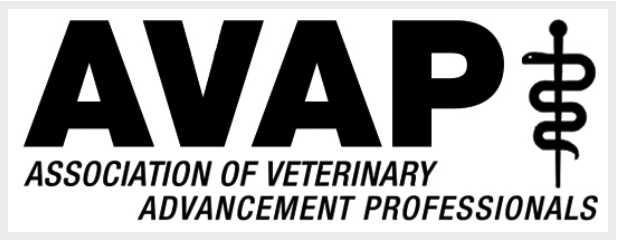
The Association of Veterinary Advancement Professionals (AVAP), a component organization of the AAVMC, held their virtual annual conference on July 27-28, 2021. Two hundred twenty-five of the more than 300 communications, development, and alumni relations officers working at AAVMC member institutions gathered for the 2021 AVAP Expo.
The meeting included keynote addresses and interactive workshops for the gathered institutional advancement professionals and was emceed by a snappy virtual conference production team that kept it fast-paced and exciting.
“People seemed genuinely happy with the conference,” said University of Minnesota College of Veterinary medicine Director of Development & Alumni Relations Bill Venne, who assumed the AVAP presidency during the meeting. “They loved the production team and their on-air talent and the games they brought to it. And the sessions seemed to work for most everyone.”
The meeting kicked off with a keynote address from Dr. Pamela Linden, a clinical associate professor at Stony Brook University’s School of Health Care Technology & Management, director of veterinary social work for the University of Tennessee’s (UT) Program for Pet Health Equity, and president of the International Association of Veterinary Social Work.
In a talk titled Connections & Belonging: CVM Students and Alumni Mental Health, Dr. Linden outlined the growing importance of mental health and wellbeing in academic veterinary medicine, the profession itself and in other healthcare fields.
She discussed the relatively new and growing field of veterinary social work and urged the audience to become aware of their school’s mental health and wellbeing resources and make those available to faculty, staff and even alumni.
“Concern about stigma and confidentiality is a major barrier,” she said, stressing the importance of making wellbeing professionals part of the many different areas of everyday life in veterinary medical colleges.
During an AAVMC awards presentation ceremony, the University of Wisconsin School of Veterinary Medicine and the University of California, Davis were honored for winning national awards for communications excellence and scholarship fundraising excellence, respectively.
AAVMC Chief Executive Officer Dr. Andrew T. Maccabe presented an address outlining current AAVMC operations, programs, new initiatives and future directions.
In closing the AAVMC session, longtime AAVMC Chief Communications Officer Jeff Douglas, who helped found AVAP in the 1990s, announced his retirement from the AAVMC, effective December 31.
“Our colleges and schools are the bedrock of veterinary medicine,” he told the group, congratulating them for the important role they play in institutional advancement. “The stories you tell, the relationships you foster, the philanthropic dollars you raise… all of those things build the foundation… and the future for this profession.”
AVAP became a component organization of the AAVMC in 2018.
AAVMC Signs International Statement on Mental Health and Wellbeing
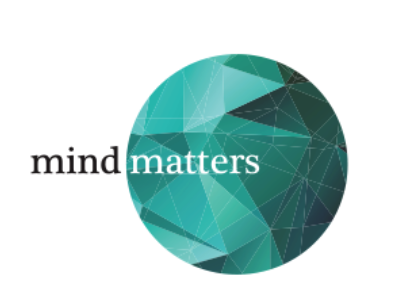
The AAVMC is joining with other prominent international organizations in veterinary medicine to express support and a commitment for making mental health and wellbeing a priority for veterinarians and all members of the veterinary team.
The AAVMC has signed onto a statement by the American Veterinary Medical Association (AVMA) and the Royal College of Veterinary Surgeons (RCVS) Mind Matters Initiative in the United Kingdom. The Mind Matters International Statement on Mental Health and Wellbeing emphasizes the need to maintain high levels of mental health and wellbeing to promote a healthy and sustainable profession.
“This mutual statement of commitment helps to raise awareness of veterinary mental health and wellbeing issues,” said AAVMC Director of Wellbeing Ms. Makenzie Peterson, who joined the AAVMC in early 2020 as its first director for wellbeing, to develop and implement an international wellbeing strategy and programs for AAVMC member institutions. “We also know that words only do so much, there needs to be action. This international statement is a visible, unified pledge from organizations to develop and share tools, resources, and interventions that will support all members of the veterinary profession.”
The statement reads:
“We believe that for veterinary professionals to realise their full potential and the global veterinary profession to remain sustainable, maintaining high levels of mental health and wellbeing for all members of the veterinary team is a priority. Improving veterinary mental health and wellbeing has a positive impact on individuals, the profession at large and, ultimately, animal health and welfare, and public health.”
Over the past several years, the veterinary medical community has increasingly focused on wellbeing. To help lead the international effort at the AAVMC, Ms. Makenzie Peterson develops systems-based community wellbeing initiatives. Her focus is to provide evidence-based interventions and increase the organizational and environmental supports that enhance the wellbeing of faculty, staff, and students at the colleges of veterinary medicine.
The RCVS Mind Matters Initiative was launched in 2015 and aims to improve the mental health and wellbeing of those in the veterinary team, including students, veterinary nurses, veterinary surgeons, and practice managers through mental health awareness training and support resources. Mind Matters is a pan-professional initiative, supported by a taskforce composed of representatives from key veterinary and veterinary nursing organizations.
The AVMA addresses mental health awareness and supports for clinicians through workplace wellbeing education and outreach. The wellbeing-related education available for AVMA members includes a workplace wellbeing certificate that covers topics on boundary setting, suicide prevention and response, and conflict transformation.
The organizations that have signed onto the Mind Matters International Statement on Mental Health and Wellbeing will collaborate on projects to advocate positive behavior and support around mental health in the veterinary profession, develop evidence-based programs, and share best practices around interventions with a three-pronged approach that includes:
Prevent: addressing the systemic issues that lead to poor levels of mental health, including the risk of suicide, and sub-optimal wellbeing across the veterinary team. This includes researching the issues and developing and advocating policies and interventions that are supportive of positive mental health.
Protect: providing and promoting the skills and knowledge required by individuals and organizations to increase levels of wellbeing and improve mental health in veterinary medicine. Making such interventions evidence-based and widely accessible.
Support: ensuring suitable expert support is available to veterinary professionals and students who need it, provided in a confidential and safe environment, and accessible without fear of judgement.
“Leading Change” Team-Based Veterinary Care Meeting Sets the Stage
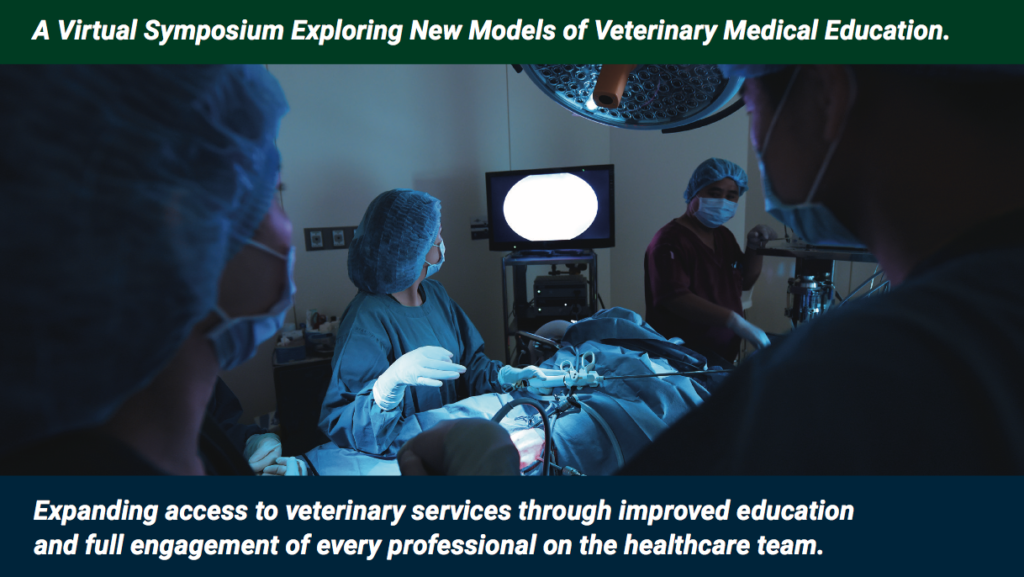
Two hundred twenty-eight veterinary educators, veterinary nurse/technician educators and other thought leaders attended “Leading Change: Emphasizing Team-based Veterinary Care,” a virtual symposium held last month which examined opportunities for enhancing educational programs for DVM students and veterinary nurse/technicians.
Presented by the AAVMC and the Colorado State University College of Veterinary Medicine and Biomedical Sciences, the conference focused on how educational changes can help enhance team-based healthcare delivery systems in the clinical practice environment.
The symposium looked at emerging innovations in veterinary nurse/technician education, including specialization, and models of veterinary nurse/technician education from AAVMC member institutions.
It also considered diversity, equity and inclusion and the veterinary healthcare team; competency-based veterinary/nursing education; potential MS programs in veterinary clinical care; and practice act considerations.
Anecdotal comments were very positive, according to Dr. James W. Lloyd, one of the meeting organizers, Senior Consultant with Animal Health Economics, LLC and former dean of the University of Florida College of Veterinary Medicine.
Lloyd said that a post-meeting survey has been distributed to meeting registrants. Data generated through that instrument will help inform future directions and programming.
VetCAN Presenting Small Animal Predominant Career Fair September 25
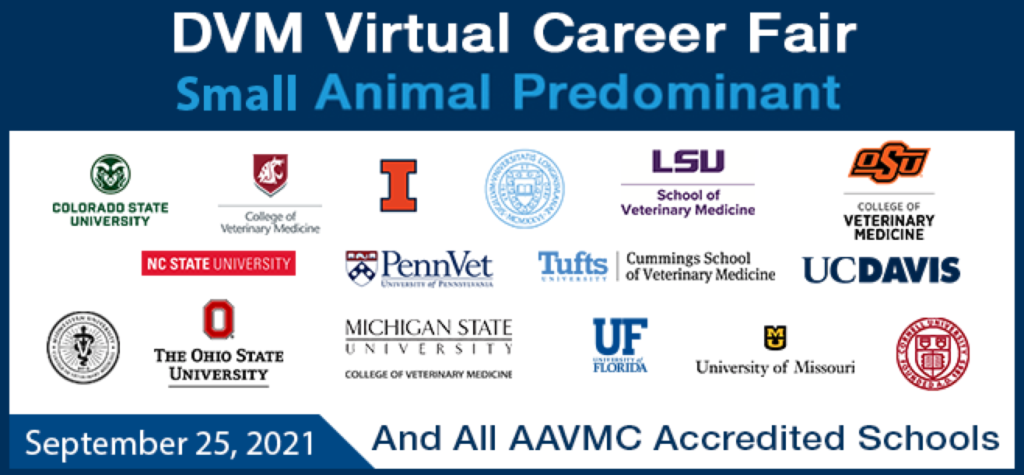
DVM students searching for a job, internship, summer opportunity, or fourth-year externship may wish to put September 25th on their calendar. That’s when The Ohio State University College of Veterinary Medicine and the AAVMC’s Veterinary Career Advisor Network (VetCAN) will present the Fall 2021 Small Animal Predominant DVM Virtual Career Fair from 1 -4 p.m.
The popular career fairs provide an opportunity for interested students to network and find national externships, summer jobs, and post-graduate positions, without any travel, cost, or COVID safety measures.
Those interested can Register now and find more registration assistance by clicking on this instructional video.
The Veterinary Career Advisor Network (VetCAN) was founded in 2014 as a resource and network for individuals working with veterinary students and alumni in the area of career and professional development.
VetCAN’s mission is to connect veterinary career professionals, and their institutions, to encourage collaboration and the development of best practices to better serve veterinary students and the profession.
In the News
As Seagrass Habitats Decline, Florida Manatees Are Dying Of Starvation
NPR
New One-dose COVID-19 Vaccine That Can Be Inhaled Tested in Animals
The Hill
Regulatory Changes Needed for Gene-edited Animals
BEEF Magazine/Farm Progress
Livestock are a Major Part of Virginia Agriculture. But There are Fewer and Fewer Vets for Farm Animals.
Virginia Mercury
Mysterious Illness Plagues Pennsylvania Songbirds
Observer-Reporter
New Live Cell Models Lay the Groundwork for Studies into Mitochondrial Diseases
Medical News
The Animal Viruses Most Likely to Jump into Humans
Scientific American
Why Televisits With Veterinarians Will Become More Common Post-pandemic
WPLG 10
Veterinary Colleges Praised for Communication, Fundraising
Veterinary Practice News
Tufts Veterinarian Students Offer Massachusetts Support Hotline After Loss of Pets
WCVB-ABC 5
Antibiotic-resistant Bacteria Found in Cattle
The Dairy Site
Local Farms Rally Around Rescued Baby Donkey
WBIR
US Universities Push for Fewer Hurdles on Gene Editing From Animals
Times Higher Education
Study Shows Virus Abundant in Covid Cases in Wisconsin, Even Among Fully Vaccinated
Mirage News
New Scholarships Aim to Increase Diversity in Veterinary Sector
DVM360
Previous Infection Just As Protective Against COVID As Vaccine
Citizens Journal
From Our Members
Dean Mark Stetter Announces Departure, Leaves Legacy of Vision and Expansion
Colorado State University
Pandemic Promotes International Participation
University of Illinois
Beloved Family Pet’s Lung Cancer is Treated with Targeted Radiotherapy Using the Accuray Radixact® System with Synchrony® Technology
University of Wisconsin
Being the Voice for the Voiceless: Rehabilitating Abused Animals
Virginia Tech (Virginia-Maryland)
She’s Your Dog, Charlie Brown
Colorado State University
Pandemic Preparedness, Three Years Early
University of Pennsylvania
Finding a Cure for Cushing’s Disease at WSU
Washington State University
UF Team Identifies Novel Targets for COVID-19 Antivirals
University of Florida
Enlisting Help From the Brain’s Own Protective System Could Advance Treatment of Neurodegenerative Conditions
Purdue University
To see a news feed featuring breaking news from our member institutions, please click here.
People in Motion
Dr. Mark Stetter, dean of the Colorado State University (CSU) College of Veterinary Medicine and Biomedical Sciences, will leave CSU on Oct. 1, 2021 to become dean at the University of California, Davis School of Veterinary Medicine.
“Like” us on Facebook or follow us on Twitter, LinkedIn, and Instagram:




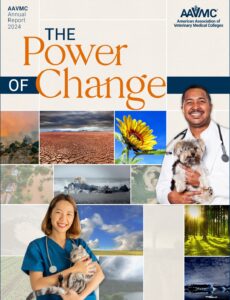




SHARE